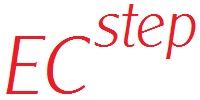Piet Hein
“Co-existence or No existence”
Piet Hein (16 December 1905 – 17 April 1996) was a Danish scientist, mathematician, inventor, designer, author, and poet, often writing under the Old Norse pseudonym “Kumbel” meaning “tombstone”. His short poems, known as Grooks (Gruk in Danish), first started to appear in the daily newspaper “Politiken” shortly after the Nazi occupation in April 1940 under the pseudonym “Kumbel Kumbell”.
Hein was born in Copenhagen, Denmark. He studied at the Institute for Theoretical Physics of the University of Copenhagen (later to become the Niels Bohr Institute), and the Technical University of Denmark. Yale awarded him an honorary doctorate in 1972. He died in his home in Funen, Denmark in 1996.
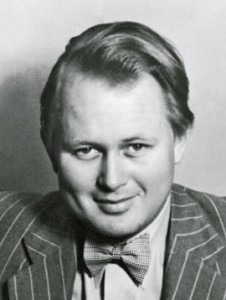 Piet Hein, who, in his own words, “played mental ping-pong” with Niels Bohr in the inter-war period, found himself confronted with a dilemma when the Germans occupied Denmark. He felt that he had three choices: Do nothing, flee to “neutral” Sweden, or join the Danish resistance movement. As he explained in 1968, “Sweden was out because I am not Swedish, but Danish. I could not remain at home because, if I had, every knock at the door would have sent shivers up my spine. So, I joined the Resistance.”
Piet Hein, who, in his own words, “played mental ping-pong” with Niels Bohr in the inter-war period, found himself confronted with a dilemma when the Germans occupied Denmark. He felt that he had three choices: Do nothing, flee to “neutral” Sweden, or join the Danish resistance movement. As he explained in 1968, “Sweden was out because I am not Swedish, but Danish. I could not remain at home because, if I had, every knock at the door would have sent shivers up my spine. So, I joined the Resistance.”
Taking as his first weapon the instrument with which he was most familiar, the pen, he wrote and published his first “grook”. It passed the censors who did not grasp its real meaning.
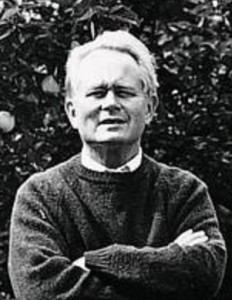 CONSOLATION GROOK
CONSOLATION GROOK
Losing one glove
is certainly painful,
but nothing
compared to the pain,
of losing one,
throwing away the other,
and finding
the first one again.
The Danes, however, understood its importance, and soon it was found as graffiti all around the country. The deeper meaning of the grook was that even if you lose your freedom (“losing one glove”), do not lose your patriotism and self-respect by collaborating with the Nazis (“throwing away the other”), because that sense of having betrayed your country will be more painful when freedom has been found again someday.
Hein published “Grooks” in over 20 volumes. Even if Hein’s mother tongue was Danish, he also translated his poems into English, German, Spanish, and a number of other languages.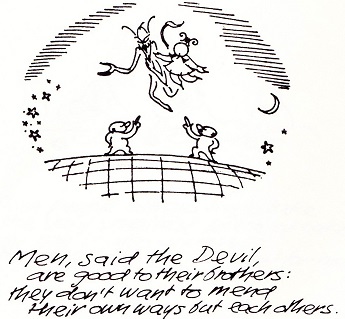
After Liberation, Scandinavian architects, tired of square buildings but cognizant that circular buildings were impractical, asked Piet Hein for a solution. Applying his mathematical prowess to the problem, Piet Hein proposed to use the superellipse – a form between the ellipse and the rectangle.
In addition to the thousands of grooks he wrote, Piet Hein devised the games of Hex, Tangloids, Tower, Polytaire, TacTix, Nimbi, Qrazy Qube, Pyramystery, and the Soma cube. He advocated the use of the superellipse curve in city planning, furniture making, and other realms. He also invented a perpetual calendar called the Astro Calendar and marketed housewares based on the Superellipse and Superegg.
Piet Hein was married four times and had five sons from his last three marriages.
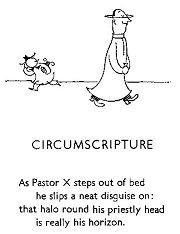 His son Jotun Hein proved the Soma cube’s “Basalt Rock” construction impossible at age 12. This was published in the puzzle’s instruction manual as “Jotun’s Proof”. Now he is a Professor of Bioinformatics in the Department of Statistics of the University of Oxford and a professorial fellow of University College, Oxford (home page of Jotun Hein).
His son Jotun Hein proved the Soma cube’s “Basalt Rock” construction impossible at age 12. This was published in the puzzle’s instruction manual as “Jotun’s Proof”. Now he is a Professor of Bioinformatics in the Department of Statistics of the University of Oxford and a professorial fellow of University College, Oxford (home page of Jotun Hein).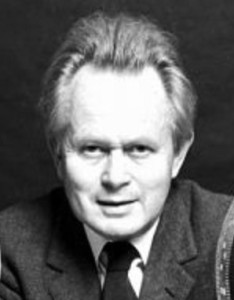
Said Piet Hein:
“Art is solving problems that cannot be formulated before they have been solved. The shaping of the question is part of the answer.”
“After all, what is art? Art is the creative process and it goes through all fields. Einstein’s theory of relativity — now that is a work of art! Einstein was more of an artist in physics than on his violin.”
“Man is the animal that draws lines, which he himself then stumbles over. In the whole pattern of civilization, there have been two tendencies, one toward straight lines and rectangular patterns and one toward circular lines. There are reasons, mechanical and psychological, for both tendencies. Things made with straight lines fit well together and save space. And we can move easily — physically or mentally — around things made with round lines. But we are in a straitjacket, having to accept one or the other when often some intermediate form would be better.” The intermediate form proposed by Hein was the superellipse.
The equation Piet Hein considered was:
![]()
where a and b are two positive numbers and n is some real number. He called all solution curves with n greater than 2 for super-ellipses.  In his current job, he found that the value n = 2½ gave the neatest and best visual effects. As for the ratio between a and b, Piet Hein used the ratio 6:5 for Sergels Square in Stockholm.
In his current job, he found that the value n = 2½ gave the neatest and best visual effects. As for the ratio between a and b, Piet Hein used the ratio 6:5 for Sergels Square in Stockholm.
Links:
Grooks by Piet Hein
–
There is one art, no more, no less:
to do all things with art-lessness.
–
Living is a thing you do
now or never — which do you?
–
As eternity is reckoned
there’s a lifetime in a second.
–
Love is like a pineapple,
sweet and undefinable.
–
Naive you are if you believe
life favors those who aren’t naive.
–
Somebody said that Reason was dead.
Reason said: No, I think not so.
–
People are self-centered
to a nauseous degree.
They will keep on about themselves
while I’m explaining me.
–
Problems worthy of attack
prove their worth by hitting back.
–
Put up in a place
where it’s easy to see
the cryptic admonishment
T. T. T.
When you feel how depressingly
slowly you climb,
it’s well to remember that
Things Take Time!
–
The road to wisdom? — Well, it’s plain
and simple to express:
Err and err and err again
but less and less and less.
–
The way to grow grand
is not: to demand.
In life’s every field
you are what you yield.
–
Wisdom is the booby prize
given when you’ve been unwise.
–
Freedom means you’re free to do
just whatever pleases you;
— if, of course, that is to say,
what you please is what you may.
–
The universe may be as great as they say.
But it wouldn’t be missed if it didn’t exist.
–
I am a humble artist molding my earthly clod,
adding my labor to nature’s, simply assisting God.
Not that my labor is needed, yet somehow I understand,
my Maker has deemed it that I too should have Unmoulded clay in my hand.
–
Whenever you’re called on to make up your mind,
and you’re hampered by not having any,
the best way to solve the dilemma, you’ll find,
is simply by spinning a penny.
No — not so that chance shall decide the affair
while you’re passively standing there moping;
but the moment the penny is up in the air,
you suddenly know what you’re hoping
Co-existence or no existence.
–
The noble art of losing face
may some day save the human race
and turn into eternal merit
what weaker minds would call disgrace.
–
Those who always know what’s best
are a universal pest.
–
A bit beyond perception’s reach
I sometimes believe I see
that Life is two locked boxes, each
containing the other’s key.
–
Foes of what’s cooking
see no worth behind it.
Those that are looking
for nothing — will find it.
–
A lifetime is more than sufficiently long
for people to get what there is of it wrong.
–
Giving in is no defeat.
Passing on is no retreat.
Selves are made to rise above.
You shall live in what you love.
–
Love while you’ve got love to give.
Live while you’ve got life to live.
–
We shall have to evolve
problem-solvers galore —
since each problem they solve
creates ten problems more.
–
Men, said the Devil,
are good to their brothers:
they don’t want to mend
their own ways, but each other’s.
–
The human spirit sublimates
the impulses it thwarts;
a healthy sex life mitigates
the lust for other sports.
–
Experts have their expert fun
ex cathedra telling one
just how nothing can be done.
–
Shun advice at any price –
that’s what I call good advice.
–
True wisdom knows it must comprise
some nonsense as a compromise,
lest fools should fail to find it wise.
–
Idiots are really one hundred per cent
when they are also intelligent.
–
You’ll probably find that it suits your book
to be a bit cleverer than you look.
Observe that the easiest method by far
is to look a bit stupider than you are.
–
He that lets
the small things bind him
leaves the great
undone behind him.
–
Simplified.
Everything’s either
concave or -vex,
so whatever you dream
will be something with sex.
–
A bit of virtue
will never hurt you
–
Life makes senses and who could doubt it,
if we have no doubt about it.
–
When people always try to take
the very smallest piece of cake
how can it also always be
that that’s the one that’s left for me?
–
Two words express
My love galore:
Nevertheless,
Alwaysthemore
–
Let the world pass in its time-ridden race;
never get caught in its snare.
Remember, the only acceptable case
for being in any particular place
is having no business there.
–
Sun that givest all things birth,
shine on everything on earth!
If that’s too much to demand,
shine at least on this our land.
If even that’s too much for thee,
shine at any rate on me.
–
The soul may be a mere pretence,
the mind makes very little sense.
So let us value the appeal
of that which we can taste and feel.
–
Corinna’s scanty evening dress
reveals her charms to an excess
which makes a fellow lust for less.
–
As things so very often are
intelligence won’t get you far.
So be glad you’ve got more sense
than you’ve got intelligence.
–
If no thought your mind does visit,
make your speech not too explicit.
–
I’d like to know
what this whole show
is all about
before it’s out.
–
I am trying to rule over ten thousand things
which I thought belonged to me.
All of a sudden a doubt take wings:
Do they…or could it be..?
A hardhanded hunch in my mind’s ear rings
from whence such suspicions may stem:
that if you possess more than just eight things
then y o u are possessed by t h e m
–
I am the Universe’s Centre.
No subtle skeptics can confound me;
for how can other viewpoints enter,
when all the rest is all around me?
–
